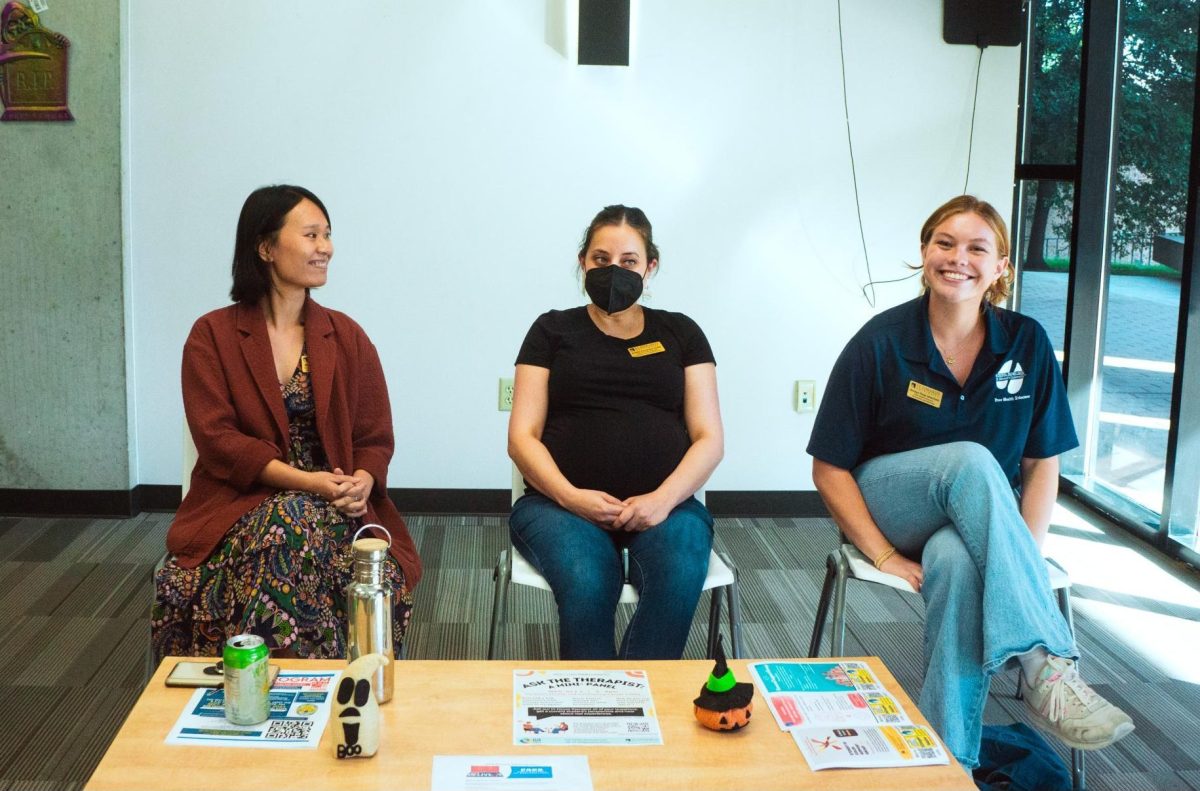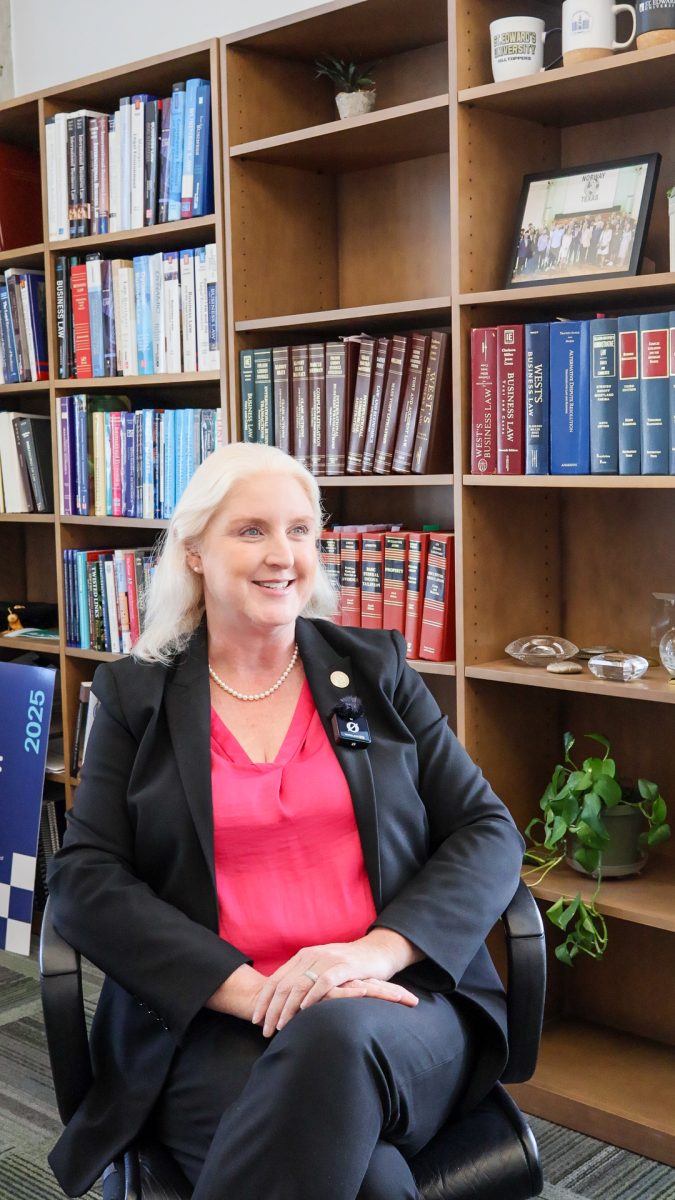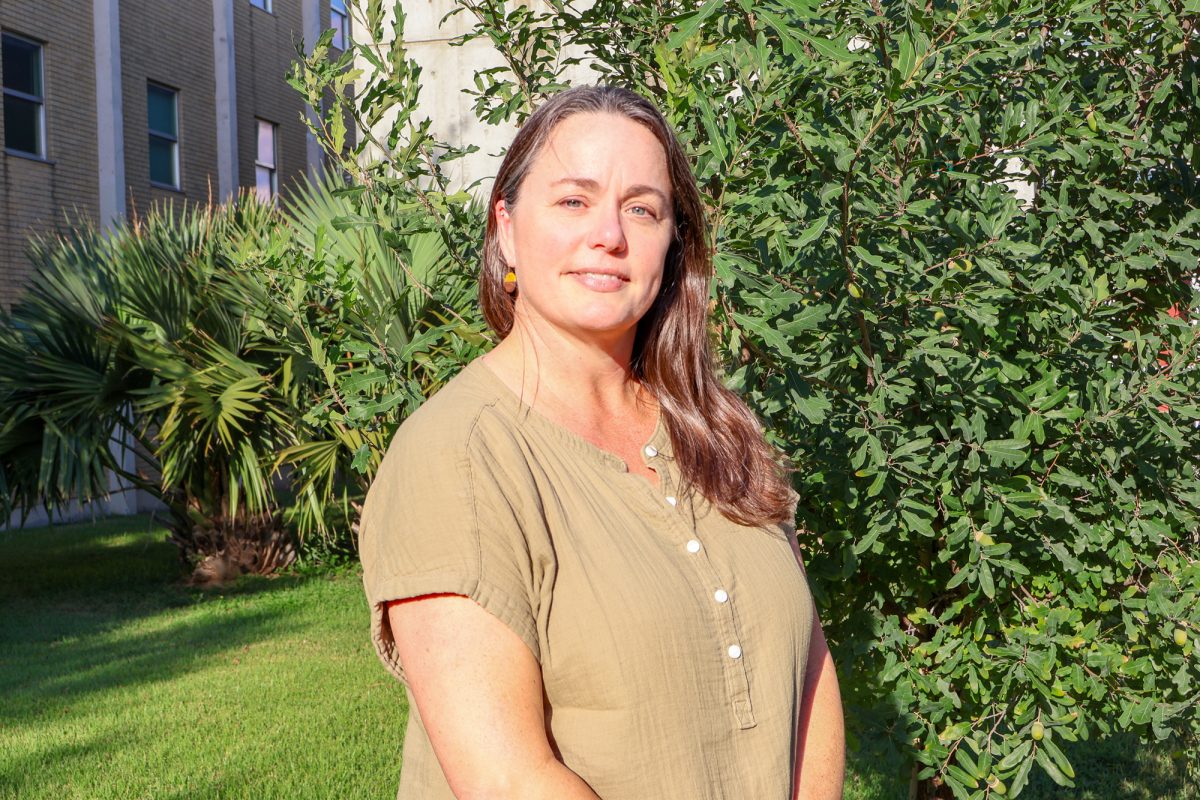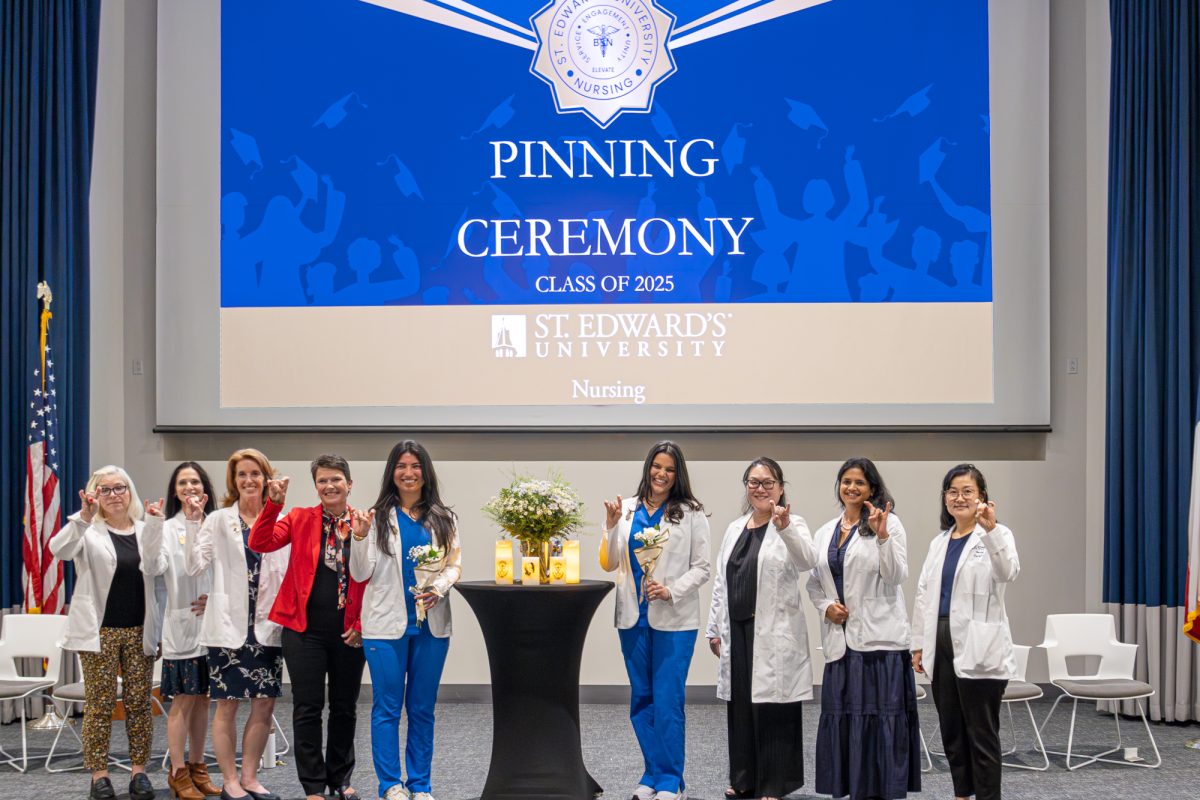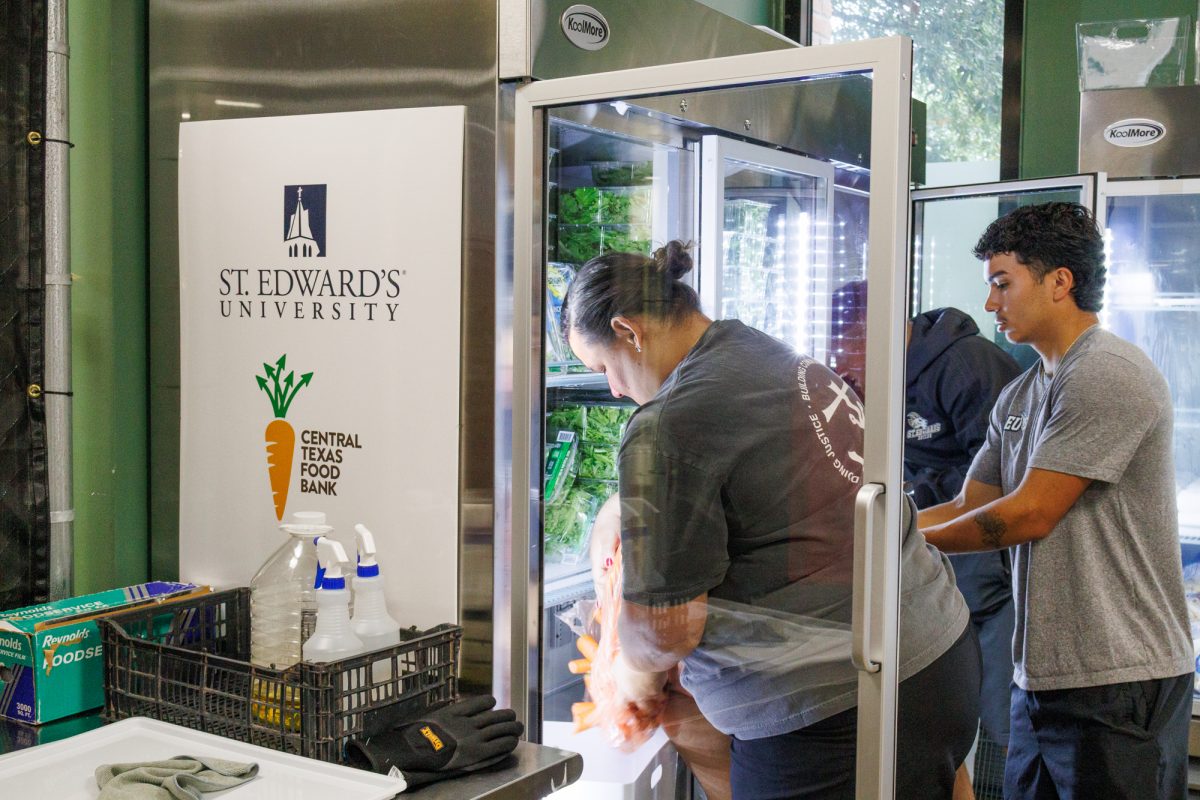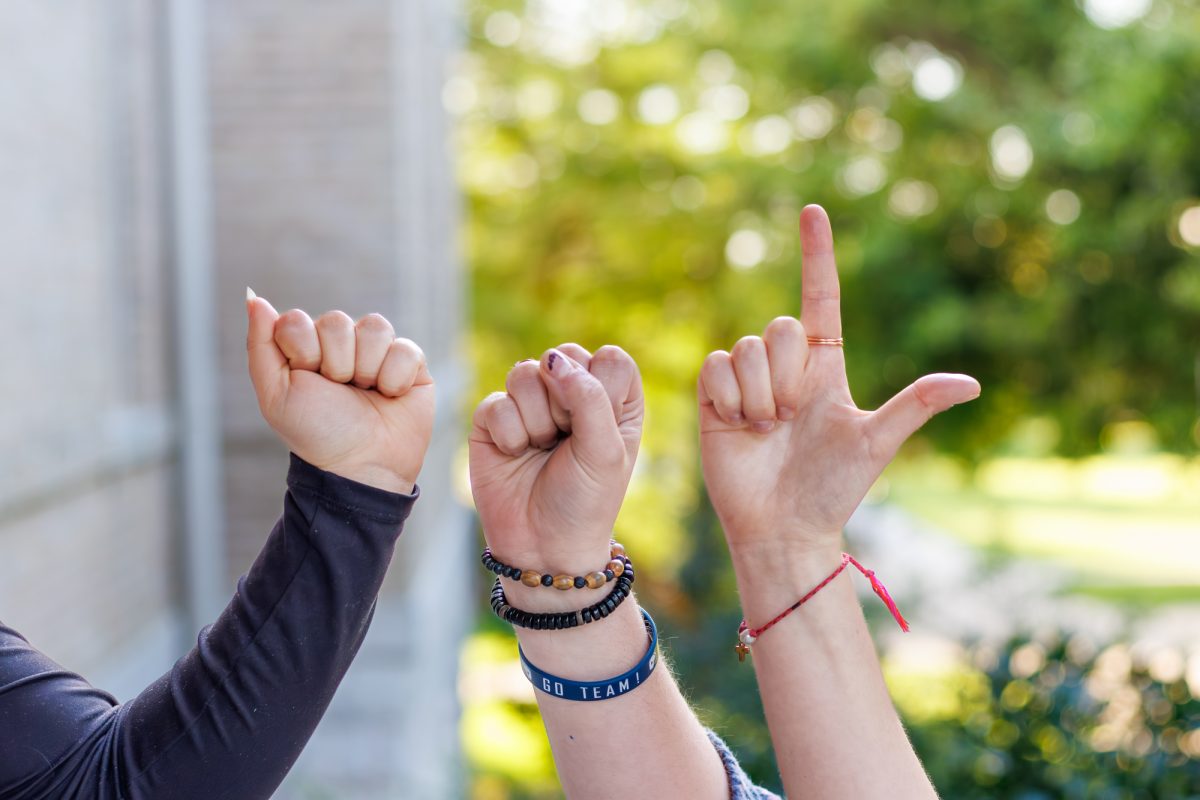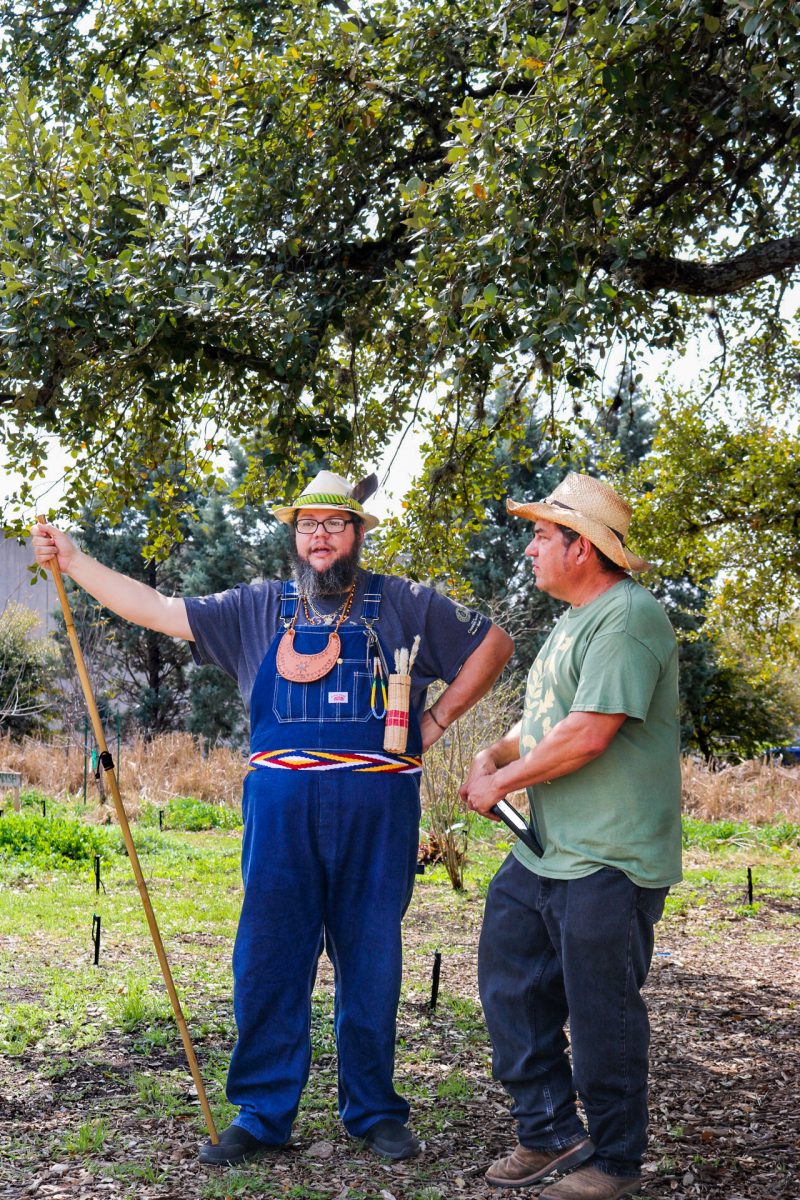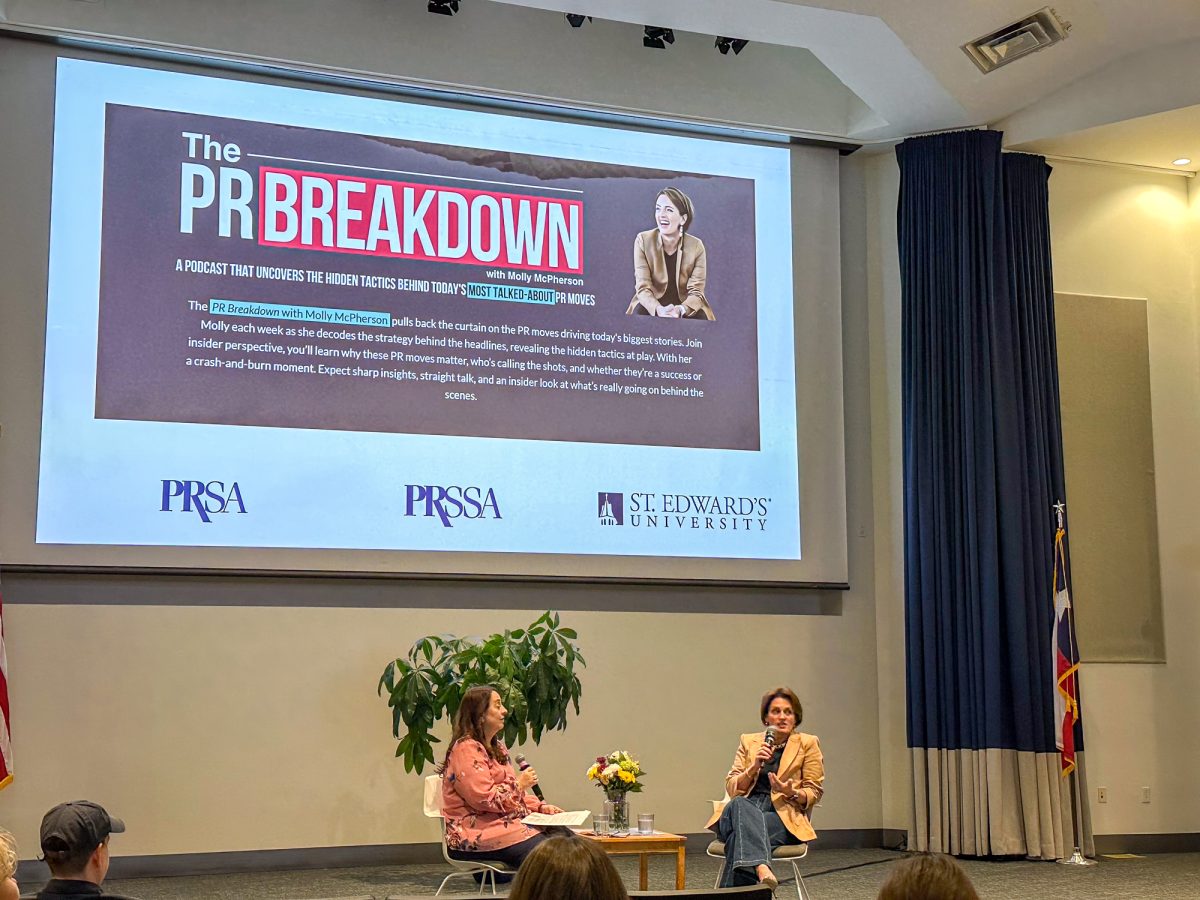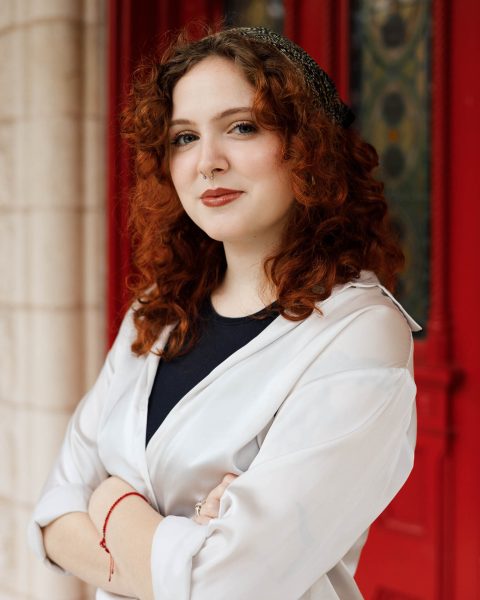The Health and Counseling Center and Recreation and Wellness collaborated to host a mini-panel in the HCC last Wednesday where speakers answered questions ranging from the stigma of therapy to the step-by-step process of getting counseling on campus. The panel featured the Director of Counseling Services Molly Wang, Clinical Case Manager/Therapist Andrea Cervantes and one student peer health educator, sophomore Amaya Ruiz.
During the panel, Wang and Cervantes identified the importance of prioritizing physical needs. If basic needs, such as eating and resting, aren’t met, then sustaining mental health becomes harder.
“Some people have an ocean’s worth of problems, but you can still drown in six inches of water,” Cervantes said.
In addition to basic needs, the panelists addressed common misconceptions about therapy, one of which being that your problems must be monumental in order to seek counseling and support.
“I think just the way they talked about how normal therapy is was really nice,” sophomore Taylor Kerr said. “I feel like, in the world, they kinda put this big bubble around it and make it scary, but they talked about it, how it’s like everyday life.”
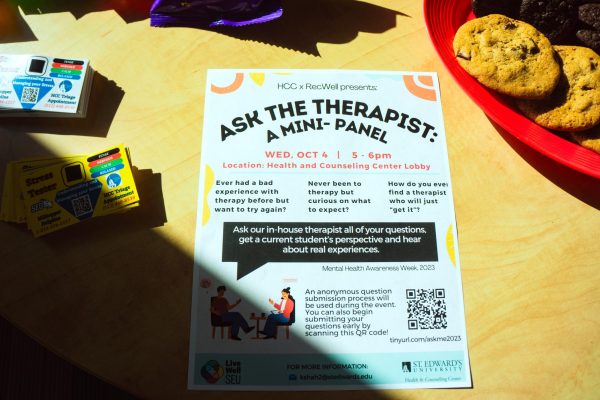
According to RecWell Assistant Director Krupa Shah, the panel’s moderator, mental health and nutrition are closely related. This month, RecWell’s focus is on nutrition education.
“Up to 90% of serotonin, which is considered our feel-good hormone, is produced in the gut,” Shah said. “So that means that food can have a high impact on your mental health.”
The panel was hosted during mental health awareness week, which takes place during the first week of October. Each year the university hosts several events to promote mental health knowledge and care; last year, RecWell partnered with the fitness department to host ‘Cycle for your Well Being.’ Along with the mini-panel, RecWell also hosted a meditation event based on mindfulness and movement last week.
“Stress and self-care is a health topic that we focus on (as well as) sleep health, which can also tie back to mental health,” Shah said. “So, I feel like our approach to health and well being is holistic, and we focus on the different dimensions but they all sort of tie into each other. So, even if it’s nutrition or even sexual health, there’s so many integrations into different topics that still tie back to mental health.”
For more mental health education, Shah encourages students to engage with upcoming RecWell events. Events are promoted on RecWell’s Instagram: @seurecwell.
“Keep coming to our programs,” Shah said. “You could just see what’s going on weekly and pop in and out whenever you want.”


